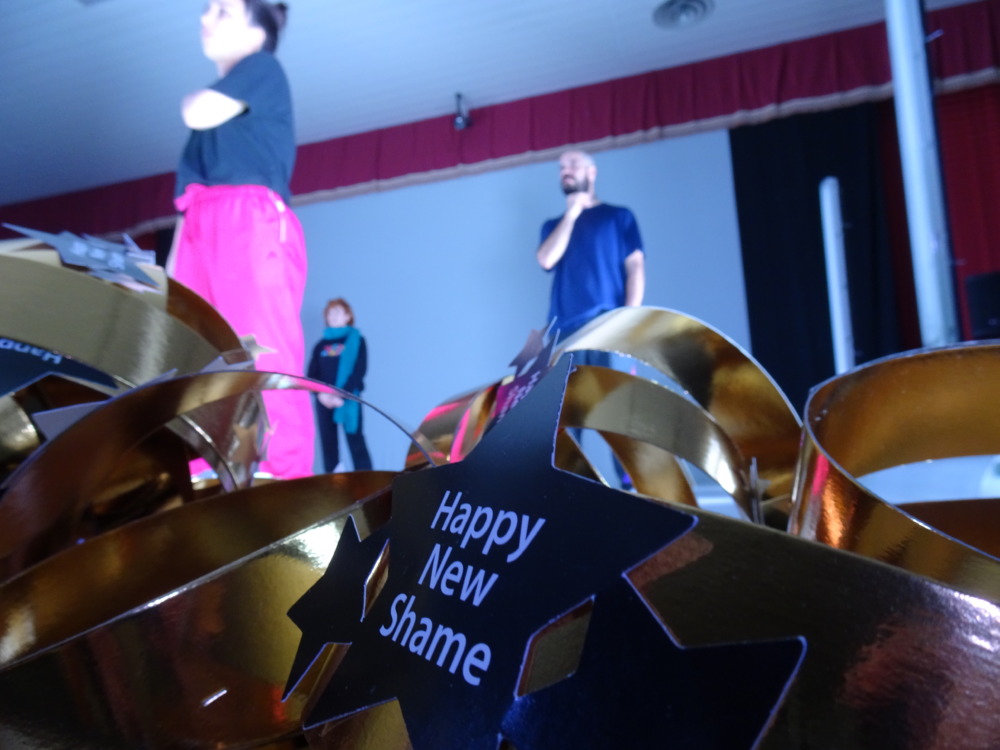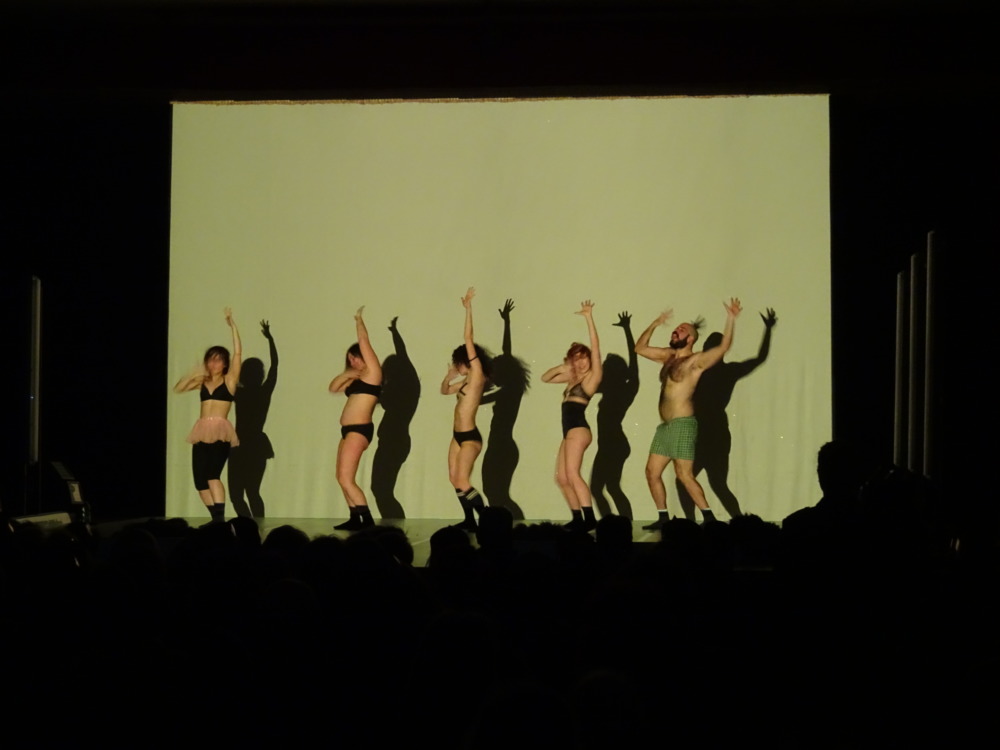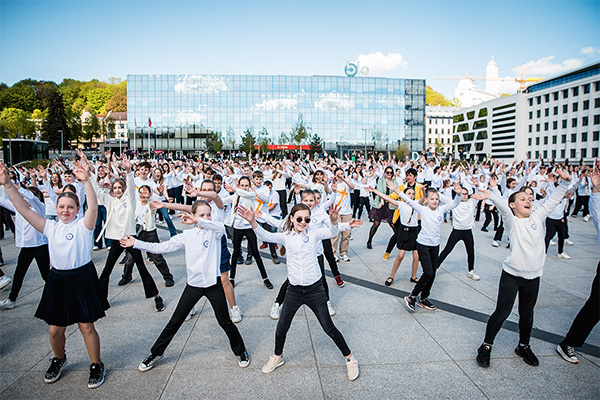Column
ColumnDISCIPLINE AND PUNISH
The coronavirus is fast arriving when we are going to play HUMANA VERGOGNA in the prison of Lecce. February 21 was one of the last days when it was still possible to play in the Italian theatres. And we were just playing in the prison of Lecce.
A warm welcome at the entrance, as if entering a party. The sparkling climate immediately crumbles the expectations of attending a show with contrite tones on a feeling that brings with it a sense of guilt, unease and inadequacy. Some inmates gave spectators golden paper crowns with a celebratory “HAPPY NEW SHAME” inscription and a blank paper sheet to answer a question: “What are you ashamed of?”.
 ©Simone Maci
©Simone Maci
On the stage, no curtains, just essential scenography, would be said to be naked, a white screen at the bottom and the sides of the metal support for neon lights. Antonella Iallorenzi, Ema Tashiro, Maria Grazia Nacci, Mattia Giordano and Simona Spirovska enter the scene, almost naked bodies covered only with a fur, clothing with a primordial flavour of survival, which evokes primitive instinct. And the body becomes a narrative between dances and gestures full of expressiveness, looks and facial expressions.
There is a continuous dialogue with the audience, the actors turn to the spectators during the performance, asking questions implicitly or explicitly, with irony, humour and without the rhetoric, the true strength of the performance.
At the end of the performance, small crowns on the head, on the sounds of ABBA’s “Dancing Queen”, the kings and queens of shame celebrate a new beginning. The rebirth is marked by a symbolic and liberating gesture: the throwing on the stage of the crumpled sheet with the list of one’s own shame. Free of guilt, free of judgments, free of conventions.
 ©Simone Maci
©Simone Maci
When Michel Foucault’s book ‘Discipline and Punish’ came out in 1975, my generation was fascinated by the discourse that looked at prisons, schools, hospitals as total and totalizer institutions and that caged bodies and people in a system of rules, penalties and rigid discipline.
Inside these institutions, it is said with Foucault, the bodies are cancelled, annihilated by an authoritarian and destructive power. Since then, a lot of time has passed, leaving behind many slags and cracks but also releasing virtuous energies, generating new practices and visions. Humanization processes and acknowledgement of people’s rights entered the heart of those institutions, also thanks to the many theatrical activities and practices that are widespread in the prisons.
And the presentation of the show HHUMANA VERGOGNA in the prison of Lecce, created for the cultural program of Matera 2019, was a happy stage in this long but now necessary path of reconstruction and regeneration of the human being that does not only concern prisoners but affects all of us.
Thirty years ago it would have been difficult to bring HUMANA VERGOGNA to prison not for the nakedness of the bodies on stage, but rather for the organization of social relations inside and outside the prison; prison and society were both ‘houses of shame’ where every vital drive was neutralized, where minds and consciences were asleep and tamed.
The revolution that theatre makes, especially within the prison institution, is all in the trigger of change that introduces in the relationship between the performer and the spectator that today is increasingly a horizontal and sharing relationship. Sharing emotions, content, thoughts. Actor and spectator question and discover each other, where gaze, listening and action intertwine signs and dreams, present and future, where the self intertwines with the other, identity with otherness.
 ©Simone Maci
©Simone Maci
There are gestures and actions in HUMANA VERGOGNA that leave their mark and that give the measure of empathy, emotional exchange, the tension to the need of change. When spectators place the golden paper crown with Happy New Shame on their heads and keep it at home or in the cell when they write their shame on a paper sheet when they applaud the performers when they embrace each other when above all you leave the room with so much confidence and awareness and with wide smiles in your face it means that the game is successful, that it is possible to build bridges between inside and outside. It means that ‘Discipline and punishment’ by Foucault can be transformed into ‘Education and regeneration.








